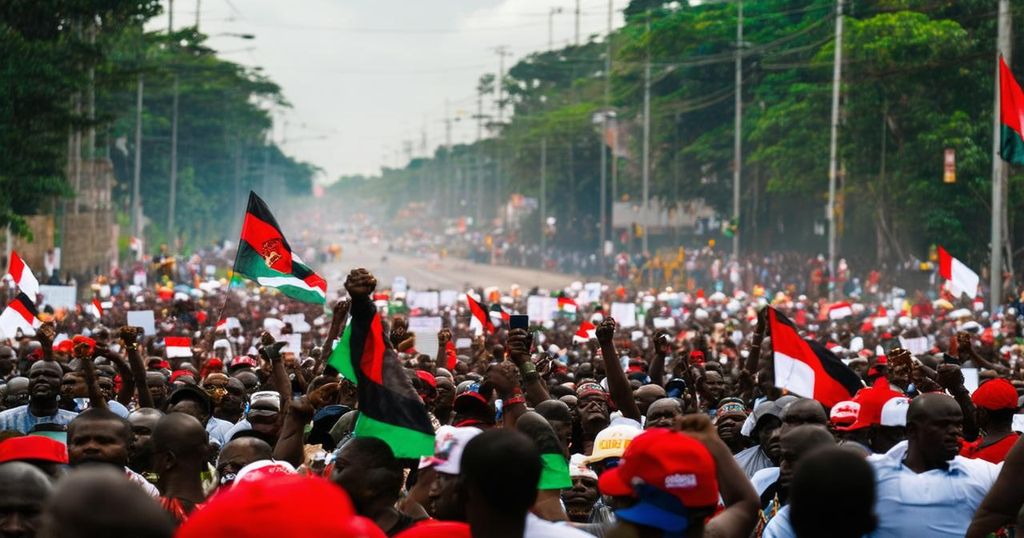Daniel Chapo Declared Winner of Controversial Presidential Election in Mozambique
Daniel Chapo of the Frelimo party was declared the winner of Mozambique’s contentious presidential election, securing approximately 71 percent of the votes amid accusations of fraud and violence. Protests erupted in Maputo as demonstrators voiced their concerns over the election’s legitimacy and alleged police brutality against supporters of opposition candidates.
In a disputed presidential election held on October 9, Daniel Chapo of the ruling Frelimo party was declared the winner, receiving approximately 71 percent of the votes. The election, which marked a significant political moment, was marred by violence and widespread accusations of fraud against Frelimo, a party that has been in power since Mozambique’s independence in 1975. Following the election announcement, protests erupted in the capital, Maputo, where police clashed with demonstrators alleging electoral fraud and accusing the party of orchestrating the deaths of two supporters of Chapo’s main rival. Despite these allegations, Frelimo officials stated that they believed the results reflected the will of the people, asserting that they had not engaged in fraudulent activities nor were they involved in the violent incidents during the protests.
Mozambique has a turbulent political history, having experienced decades of civil strife following its independence from Portugal in 1975. While Frelimo has maintained its grip on power throughout this period, socioeconomic inequalities have persisted, particularly evident in the context of the ongoing insurgency in Cabo Delgado, which is fueled by grievances stemming from poverty and unemployment amidst vast natural resources. The governmental response to recent electoral contests and the resulting public unrest signify the internal challenges faced by the Frelimo party, as it navigates both political opposition and socio-economic discontent.
The recent presidential election in Mozambique has underscored a pivotal moment in the country’s political landscape, revealing significant divisions and tensions within society. As Daniel Chapo prepares to assume the presidency amidst claims of fraud and violence, the future of Mozambique’s governance will likely hinge on the administration’s ability to address the grievances of its citizens and restore public trust in the electoral process.
Original Source: www.nytimes.com




Post Comment